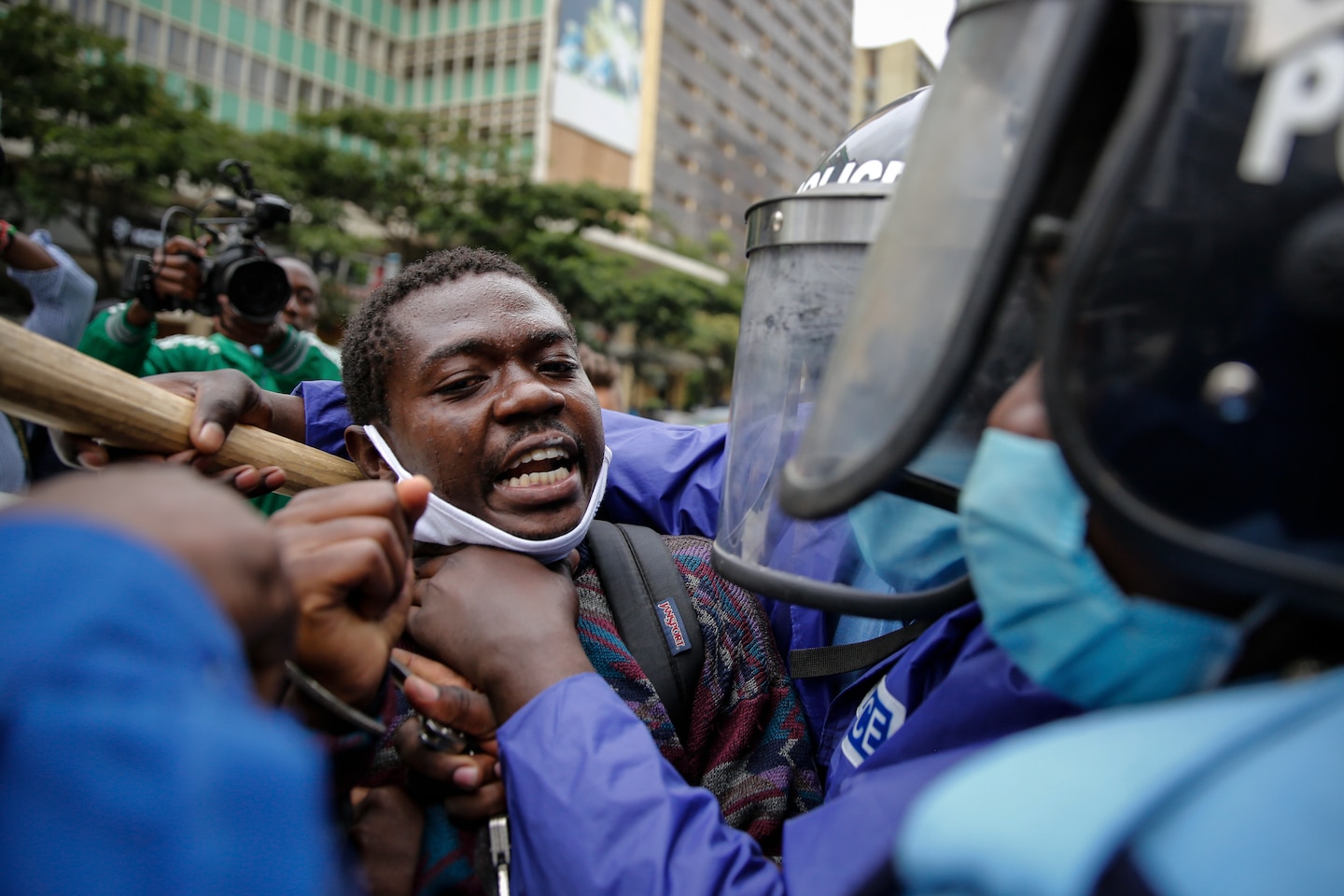‘On our own’: Kenyan activists feel alone in the fight against police brutality

However, turnout was a far cry from the crowds on July 7, 1990, when thousands, led by some of the country’s prominent activists, engaged police in running battles, challenging the one-
party state at the height of Kenya’s clamor for a multiparty system.
That demonstration would lead to an increased democratic space decades later. Kenya would establish a new constitution in 2010, one whose fruits have yet to be realized, say those who turned out last week.
Few in the streets
On Tuesday, more than 60 people were arrested by police, using batons and tear gas, on charges of breaching coronavirus restrictions on public gatherings. There was no mass protest, just scattered groups, and the organizers, some of Kenya’s most hardened activists, were left to wonder: What will it take for Kenyans to push back against police?
“We were on our own,” said Wilfred Olal, one of the organizers. “Young people just said, ‘This is between us and destiny,’ because our lives depend on it.”
While protests have swelled in other countries, the pandemic has squeezed some of the energy out of the anti-brutality movement in Kenya.
High-placed allies in international organizations have dropped out of protests for fear of breaking pandemic laws, and police have used a colonial-era Public Order Act to arrest those who show up.
Police did not respond to repeated requests for comment. But Nairobi’s police chief, Philip Ndolo, told the Agence France-Presse news agency that under coronavirus restrictions, protests are banned. “It is outlawed, it is not legal, and no permit has been given,” he said.
But it’s not just the pandemic. Grass-roots rights groups, such as the social justice center Olal runs, have contended for years with the challenge many global activists face in getting those not directly affected by police brutality to join in the fight against it.
Last week’s low turnout stings more because police violence has seemed so relentless, activists say.
Rise in police-linked killings
Since Kenya announced its first coronavirus case in early March, alleged instances of police brutality tied to the enforcement of virus containment measures have come in waves. Rights groups have helped document at least 95 cases of killings they say were linked to police this year.
The shooting of a 13-year-old boy, Yassin Moyo, who was on the balcony of his house watching police enforce a dusk-to-dawn curfew, sparked particular outrage.
Before Tuesday’s march, international human rights organizations that Olal works with told him by phone and email to call it off and instead “do the march using Zoom.”
“How do you tell the father of Yassin Moyo that we have postponed protesting that injustice?” Olal said. “Or that we will seek justice after covid yet the son was killed because of covid? If an injustice is committed today, we will fight for justice today.”
Renee Ngamau, the chair of Amnesty International Kenya, said that participating in protests these days is tricky and that “it’s not business as usual.”
“It is just not from an establishment or from a police point of view, it is also from individuals who are very conscious that we are in a pandemic,” she said.
Despite wins by activists — such as the establishment of a police oversight agency and the rebranding of the police as a “service” rather than a “force” — alleged killings by officers have continued apace. A mass movement, like Black Lives Matter, is what many activists in Kenya believe is the only way to bring about real change.
Activists have ‘disappeared’
The very leaders who would build such a movement, however, face police brutality and intimidation themselves.
On a morning in late April this year, Michael Njau Nyambura, a leader in a social justice center in the neighborhood where Yassin was killed, left his home to visit an aunt whom he had not seen in a while.
He and a cousin hired a taxi bound for a suburb. That was the last his family has heard of him. Kenyan police did not respond to requests for comment on the case.
Demtillah Gwalla, a colleague of Njau’s, said his was just one of many alleged “disappearances” of activists by police that keeps her up at night.
Just as in most previous cases, family, friends and colleagues say that it is not possible to pinpoint who may have been involved and that they are relying on police for that information.
“When you follow cases like Yassin Moyo’s, they consider you a threat, so we always have this fear of who is next,” Gwalla said.
Last year, the mysterious death of Caroline Mwatha, a colleague of Olal’s, led four others at the social justice center to quit.
As police and other security forces dispersed the smattering of protesters in downtown Nairobi on Tuesday, they attempted to arrest Juliet Wanjiru Wanjira, co-founder of the biggest social justice center in the city. She refused to be handcuffed, and when the officers relented, she shouted: “When we lose our fear, they lose their power!”
“If one of my children came up to me and tells me that they want to continue with what Michael was doing, I will say no,” said Njau’s mother, Anne Nyambura. “That work is what made my baby disappear. I would tell my son: ‘Continue selling fruits, don’t involve yourself in a lot of drama.’ ”
Correction: An earlier version of this article misstated Renee Ngamau’s title, she is the chair of Amnesty International Kenya.






